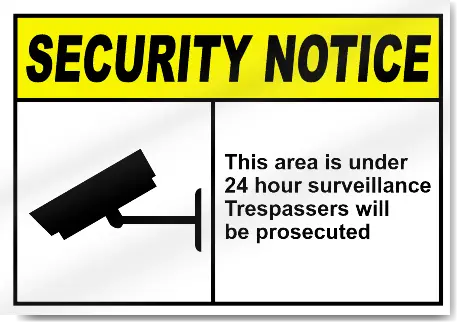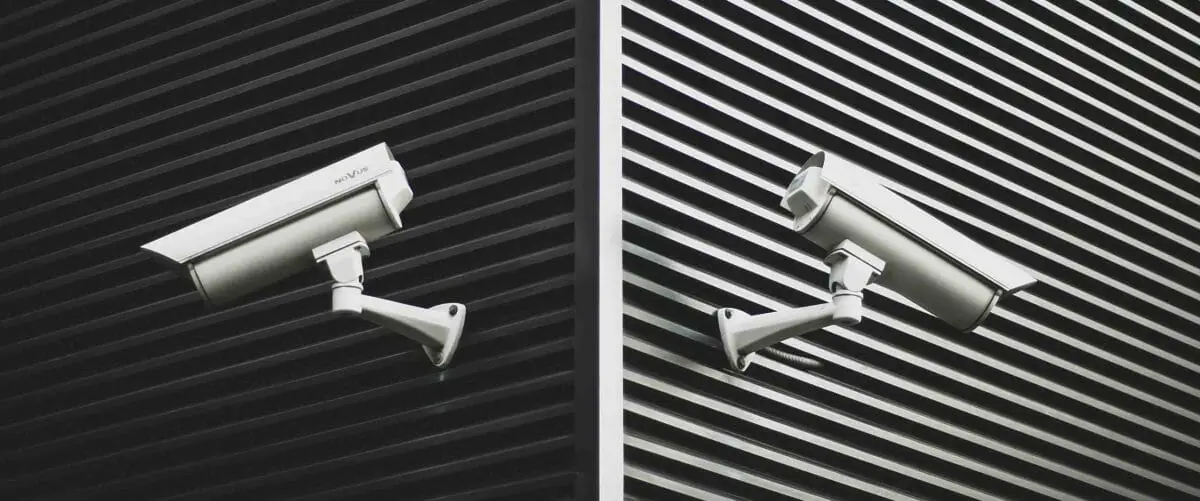Are you worried about the legality of tampering with a security camera?
If the tampering involves trespassing, property destruction, or any criminal intent, it may be treated as illegal. Employees tampering with their employer’s camera can go against the company’s policies or codes, and if it’s a high-level security location, the tampering would be illegal.
Perhaps, the only possible grounds for tampering would be if the camera is directly pointed at a private area of your home, it is being used for some malicious purpose, or it did not involve your consent when consent was necessary. However, the law is not always clear and may vary depending on where you live.
For more precise information about your area, check your local laws or consult your lawyer.
Things Legally Seen as Tampering with a Security Camera
The following may be considered as tampering with a security camera:
- Disabling the security camera, such as switching it off, unplugging it, or cutting a cable
- Re-orienting the security camera to make it point in another direction
- Covering its lens, such as by spraying it, painting it, smearing it, or putting something over it
- Putting something in the way of the lens so that the security camera is unable to view what the owner intended to view
- Jamming a security camera or hacking it if it uses radio waves or wifi
- Otherwise, damaging the operability of the security camera in any way, such as by hurling a projectile toward it
If your security camera was or is at risk of being subjected to any of the above, or if you are considering doing or doing any of the above to someone’s security camera, it would likely be considered tampering.
The Law on Tampering with a Security Camera
Where tampering with a security camera is illegal, it is usually because of disabling or destroying the owner’s property.
A situation where tampering might be permitted is if the recording is in a private area of your home or other personal space or if you otherwise have the right not to be recorded.
In practice, the law on tampering with a security camera is unclear. In a court of law, if you tampered with one, you may find yourself having to justify the tampering action, so ask yourself:
- Was the camera in a private area or a public/common area?
- Are you the target of a malicious surveillance attempt?
If you are the owner of the security camera, ask yourself the following:
- Who were you trying to secure, and from what?
- Did it involve trespassing on private property?
- If it was the police, did they obtain a warrant to enter your property?
Example of a Law
Here is an example of the law stated in the 2014 Oklahoma States, Title 21 (Crimes and Punishments), Section 21-1993 on “Tampering with or disabling security or surveillance camera or security system”:
“It shall be unlawful for any unauthorized person to refocus, reposition, cover, manipulate, disconnect, or otherwise tamper with or disable a security or surveillance camera or security system… for the purpose of avoiding detection when committing, attempting to commit, or aiding another person to commit or attempt to commit any” misdemeanor or felony. [Justia, 2014]
If the intention is criminal, you can see that it would be considered illegal.
Tampering in Different Places
The legality of tampering with a security camera depends on where the tampering takes place or in what context of use.
Tampering with a Home Security Camera
A security camera on the premises of your home or a neighbor’s is where the law is most unclear.
More issues will likely be involved in these cases, including privacy and consent. Further investigation may be necessary to uncover the motive.
Tampering with a Security Camera in the Workplace
In a workplace, security cameras are typically mentioned in the company’s policies, codes of practice, or rules and regulations.
Tampering with them will most likely violate those policies or codes to which you agreed, as an employee, to work there. You can expect to be given a stern warning or be fired. It may very well be illegal if it’s a high-security workplace or one where the state regulates camera usage.
Tampering in a High-Level Security Area

Suppose you tamper with a security camera in a public place where the camera has been put there by your local authority, the police, traffic monitors, the military, or a federal agency. In that case, you probably know already that it is illegal.
In some places, even attempting to tamper with a security camera could put your life at risk. You could be shot for trying if it’s a heavily guarded, militarized area.
Protecting Your Security Camera from Tampering
Whether your security camera is tampered with legally or illegally or at risk of being tampered with, if you’re the owner, there are ways to protect your camera hardware. Here are some tamper prevention methods you can implement:
- Installing a vandal-resistant security camera built to withstand vandalism.
- Using strong and resilient materials.
- Using robust mounting mechanisms.
- Having tamper detection features, such as instantly backing up to the cloud when a tampering attempt is detected.
- Using Torx screws, as they are less common.
- Encrypting the data.

